
Stress & metabolism Endocrine control of body functions

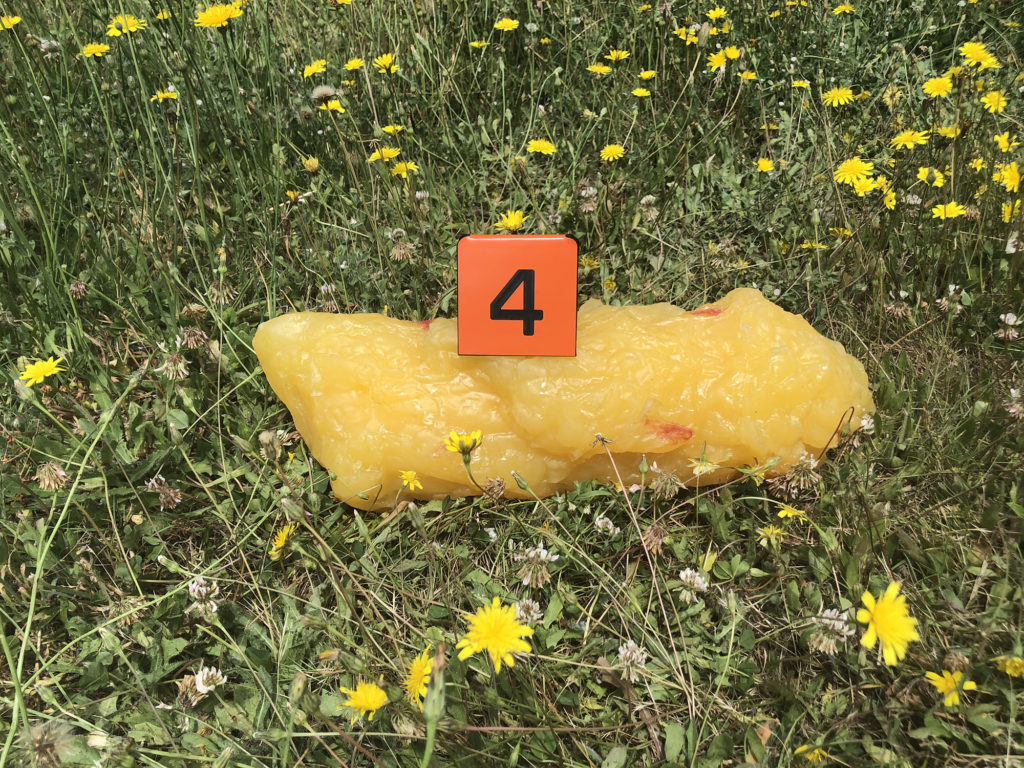
Stress & Metabolism Objectives
-
Explain what stress is, including examples of short-term and long-term stress events.
-
Describe the impacts of adrenaline (epinephrine) and cortisol on the body and list factors that can reduce the potential impacts of a stress response.
-
Define metabolism, including catabolism and anabolism and explain how hormones impact appetite.

Stress has many meanings. In a medical sense it refers to a physiological response to external and/or internal cues.
People respond very differently to external variables. Some people will watch this spider and be distressed by the legs and movement; others will think it is adorable. Some of these responses are innate (genetically determined) and other are learned through experience.
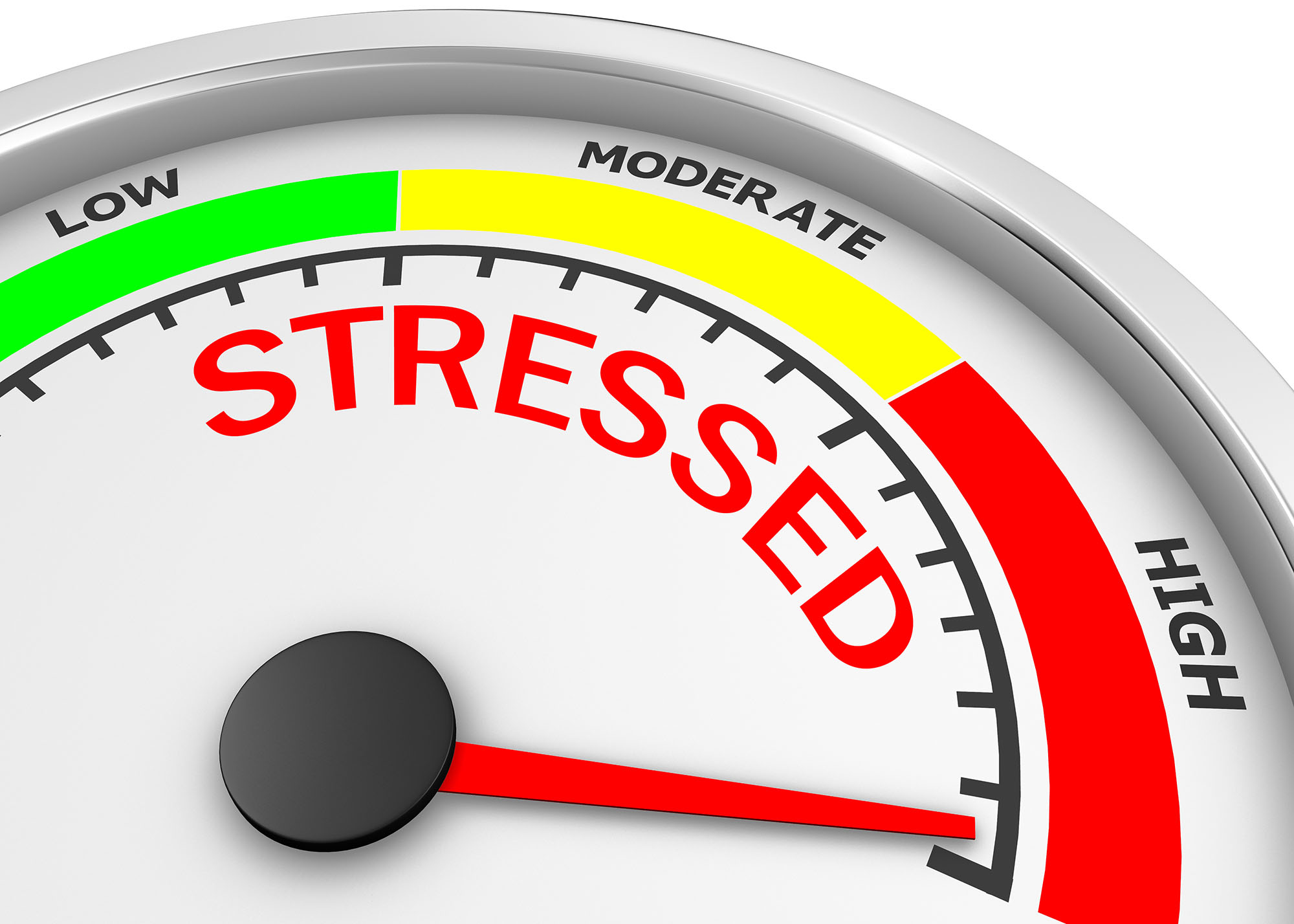
Stress-inducing occurrences and our responses can be be positive. We may pay better attention, feel motivated, and get things done.
Unfortunately, stress responses can also be harmful, particularly if chronic and un-managed.
What are the endocrine organs that sit on top of each kidney? _____
Now we are going to see how these organs play a critical role in stress management.
We have all experienced an “adrenaline rush.” Re-live what it feels like.
Consider why these physiological responses would be significant in an actual emergency.
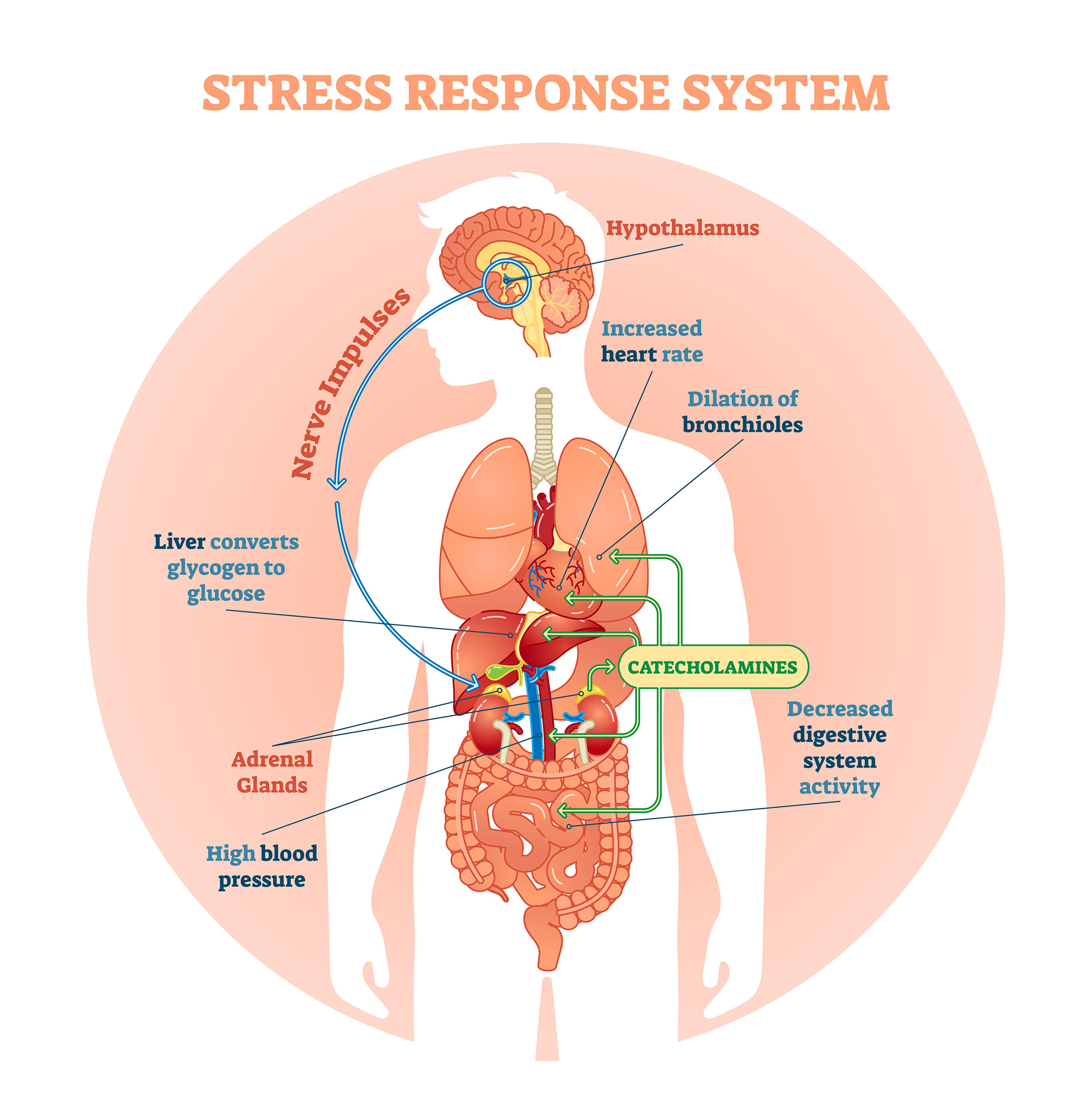
The stress response occurs along two pathways. In short-term stress, senses send information to the brain, and the brain sends a signal through the spine and nerves directly to the adrenal medulla. The adrenal medullar than releases ___, the “emergency” hormone.
In response to long-term stress like starvation or chronic bursts of short-term stress events, the hypothalamus triggers the pituitary gland to release a hormone that increases cortisol production in the adrenal cortex. High levels of cortisol can cause a negative feedback loop that reduces this stimulation by the hypothalamus. However, continual feedback “desensitizes” the hypothalamus’ response and cortisol keeps getting produced.


Cortisol has wide-reaching impacts on the body that would be helpful if an individual was facing starvation. Does cortisol increase or decrease overall metabolism? ___
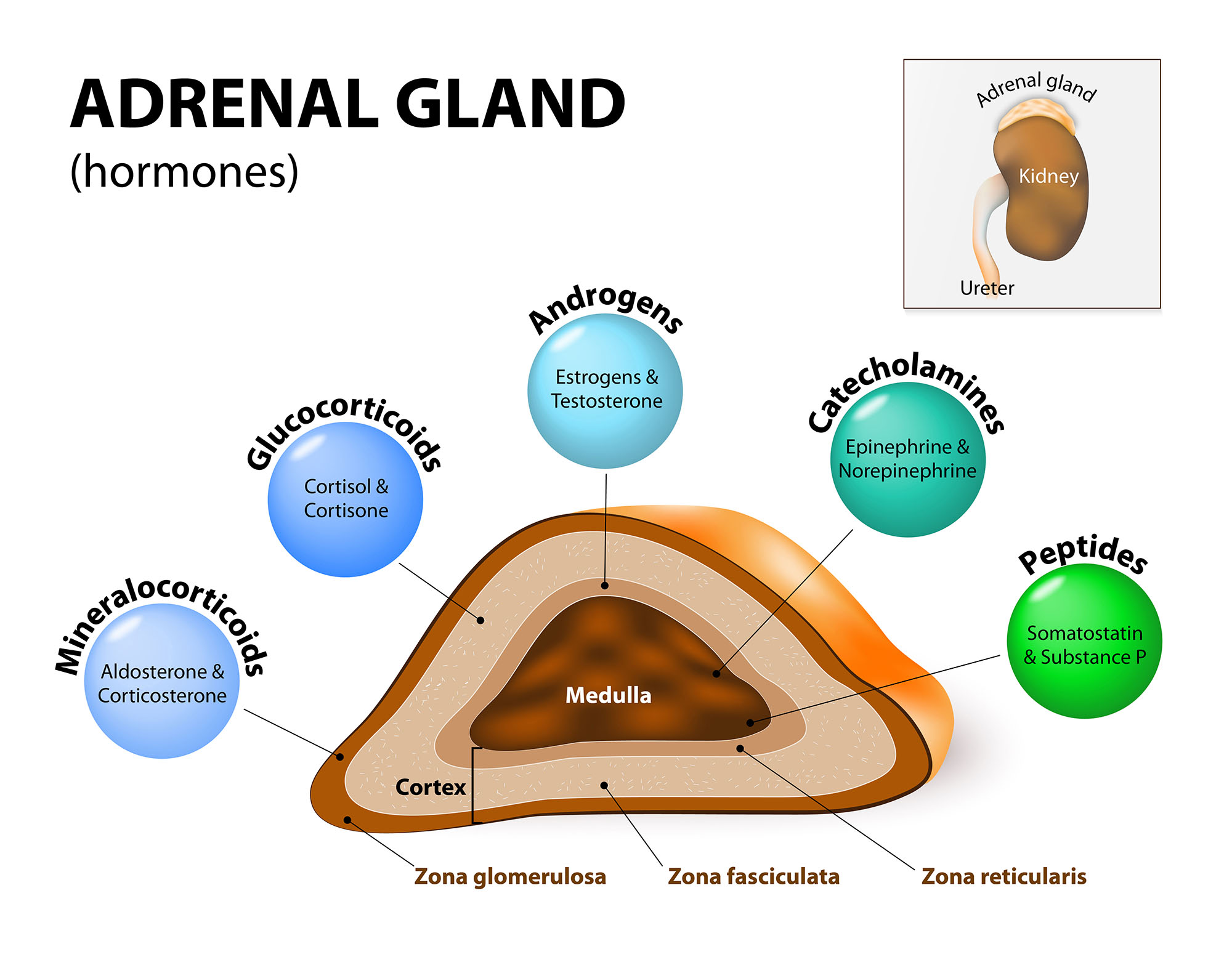
In addition to cortisol and epinephrine, the adrenal glands release other important hormones. The mineralcorticoids and glucocorticoids mediate inflammation, a topic explored in the week 9 module.
Many factors are not under our control, but some are. Consider the impact of carving out a small corner of space intended to reduce stress-inducing triggers.
One of the external factors that contributes to stress is not having enough time to complete desired activities. There are natural times events like day/night and the seasons, but our perception of time can be creatively managed to a point.

When you do something you really enjoy, does it seem like time is moving faster or slower? How does it vary depending on the activity?
There are many factors, or variables, that can impact stress. In the next journal assignment, you are designing a mini-study to research stress.
Research can generate or test variables
Qualitative
Qualitative research broadly studies a phenomenon, generating variables for further research. For example, if you are not sleeping well, you could observe your setting and behaviors, and generate a list of possible variables impacting sleep: time you had your last cup of coffee, the comfort of the mattress, the temperature, etc. Qualitative data is often verbal, listing the qualities of something.
Quantitative
Once you have possible variables, you can alter them to find out how significant they are. For example, you could alter the latest you drink a cup of coffee, change a mattress, or lower the temperature and see how it impacts sleeping. Quantitative is more experimental, looking for cause and effect by controlling and manipulating variables. Quantitative data is often numerical, measuring a variable.
Start this Guide’s second journal assignment here
Journal Page #8: Stress Study
For this journal page, you are designing a mini study of your own stress. This can be qualitative (finding variables) or quantitative (testing variables). You are designing this mini study and turning in your procedure.
You do not need to conduct this min-study, but if you do, exercise care and safety in all self-study procedures.

Possible examples of self-study of your own stress:
- Take an online stress survey and reflect on the results, as well as critiquing the quality of the survey.
- Try different activities and reflect on your perception of time during each activity.
- Monitor heart rate at different times of day related to different activities that may be stressful, including things like studying, Zooming a class, etc.
- Collect different people’s ideas about stress and write about how your most stressful events compare to other people’s events.
- Develop a space intended to reduce stressful triggers and monitor your response.
What you are turning in a summary of your mini-study that includes:
- your procedure, including whether it is qualitative or quantitative.
- why you chose this form of data collection.
Sometimes reflecting on stress can reveal concerns that were otherwise hidden. If you need assistance with stress management or simply a professional to weigh in, OSU’s CAPS program is available to all enrolled students.
Metabolism
The endocrine system not only regulates response to stressful events, it also regulates metabolism, the amount of cellular activity within the body.
People often discuss their “metabolism,” particularly related to how much they eat and whether they gain weight or not. This video explains what metabolism is and how it relates to the calorie-containing nutrients we are consuming.

Metabolism is a combination of all cellular activities, and typically we measure metabolism through the body heat created by cellular activity, including muscle contraction.
Breaking down molecules is called catabolism and building up new molecules is called ___.
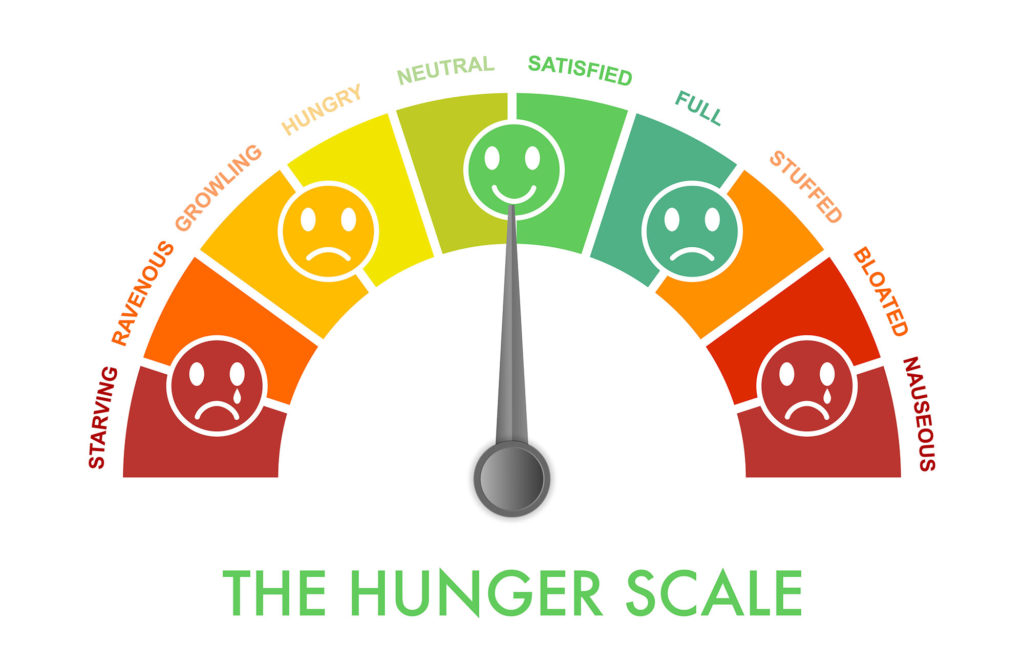
Appetite regulation is complex. Several hormones are involved, produced by endocrine cells in different organs.
The appetite story starts simply enough with two hormones: leptin and ghrelin. If leptin levels are high you can feel full or satiated, if ghrelin levels are high, you can feel hungry.
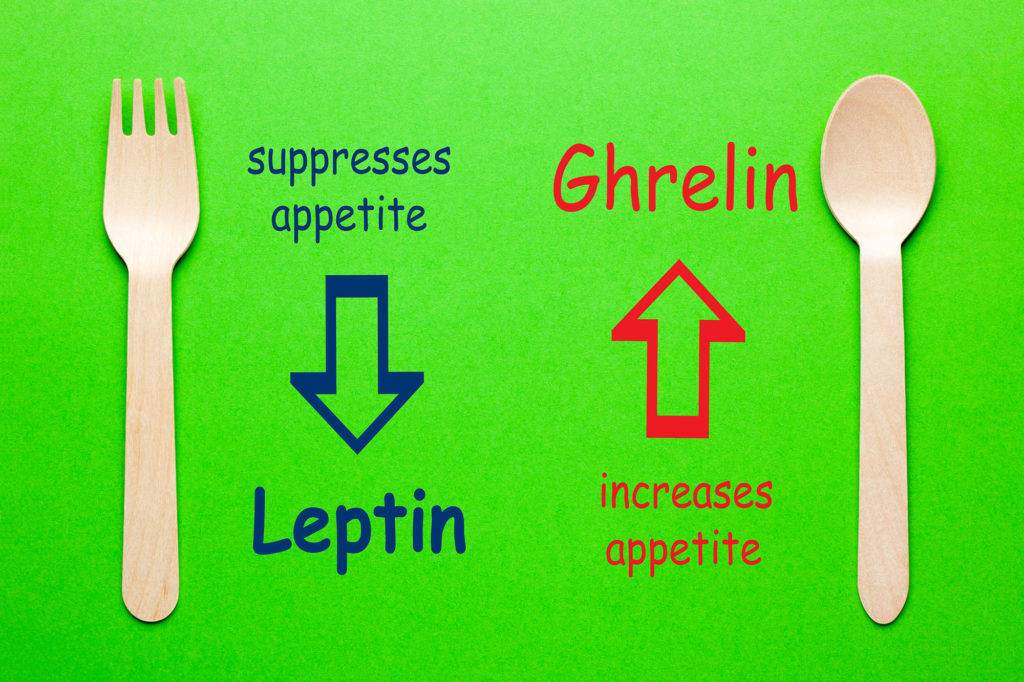
The stomach and adipose tissue play an important role in regulating appetite. The stomach produces ___ that makes us feel ___. Adipose tissue produces many hormones, including ___ that makes us feel satiated.
These two hormones are impacted by a number of factors, not just how much you eat. For example, if you exercise, your stomach tends to increase ghrelin production, and you can get hungrier. That makes sense if your body is trying to keep you from starving, but can work against you if you are trying to lose weight.

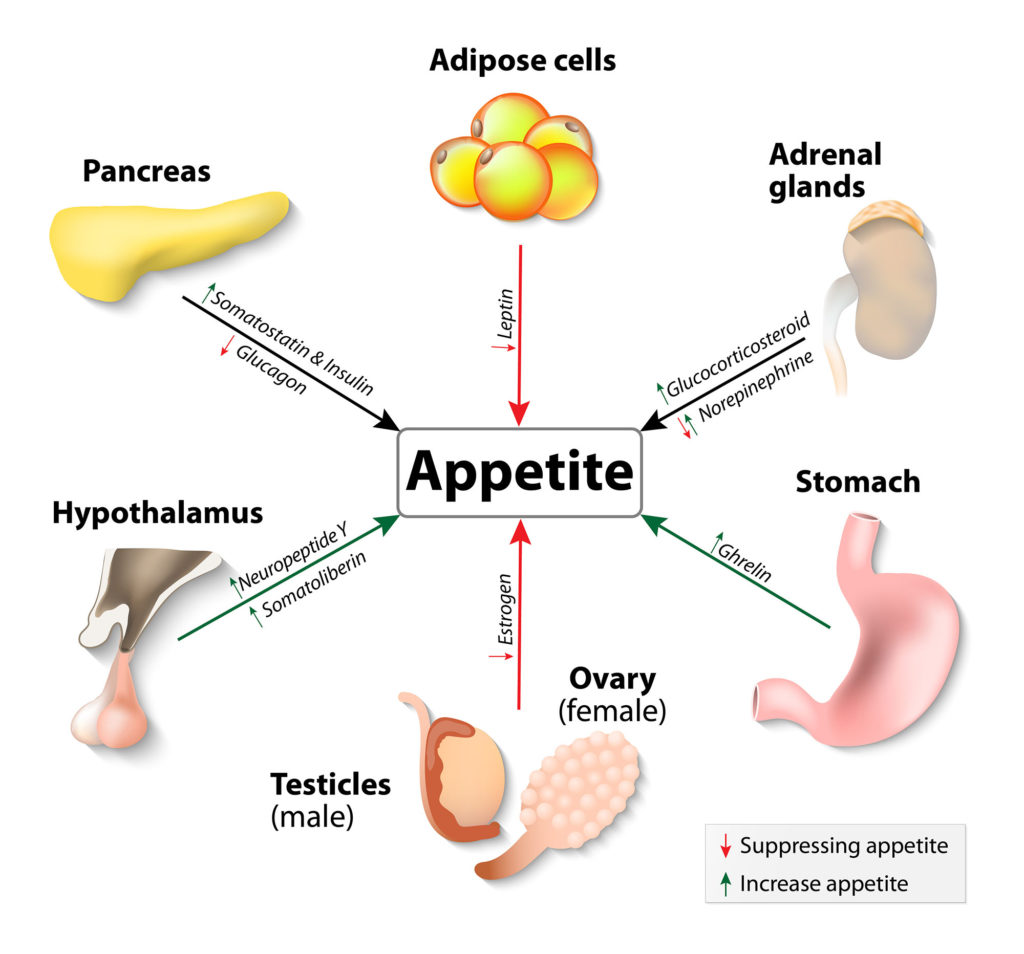
And it turns out that even though leptin and ghrelin are the primary hormones that impact appetite, several other hormones do as well. Changes in combinations of these hormones may impact whether a person feels satiated or hungry.
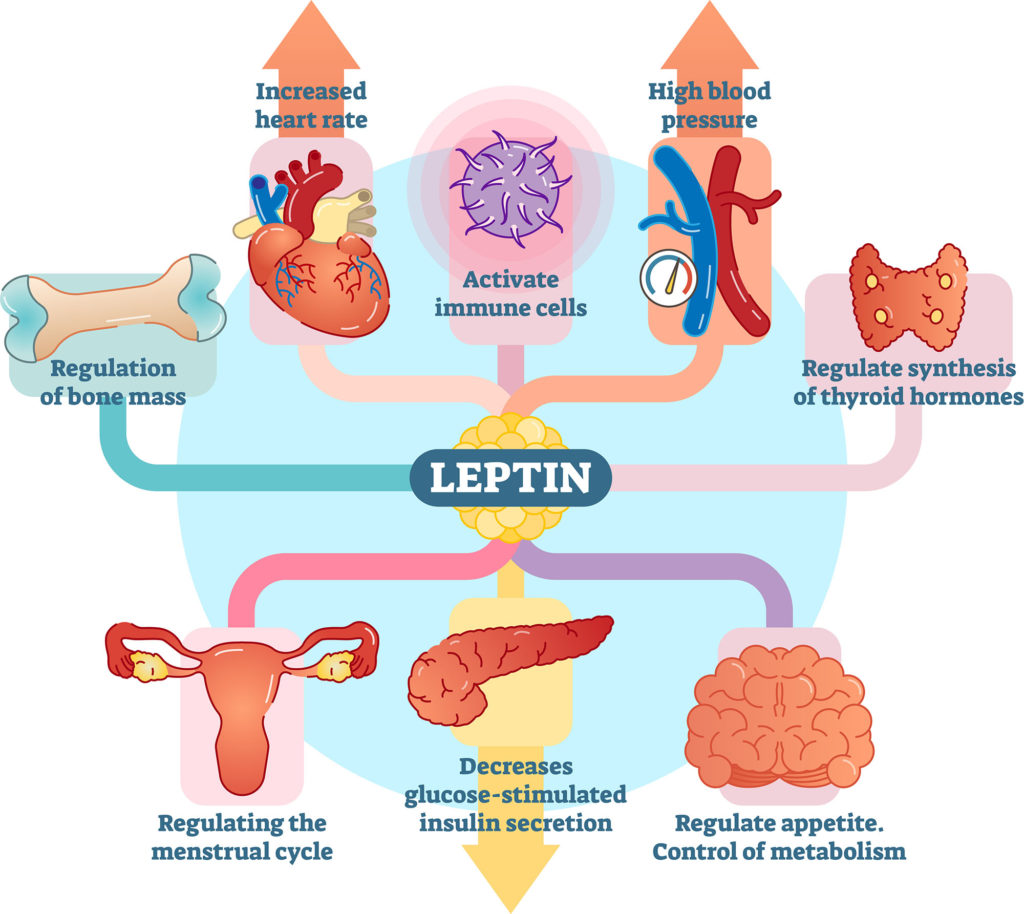
Leptin comes from ___. This hormone not only impacts appetite, it also impacts a variety of organs in diverse ways. And leptin is only one of at least eight hormones produced by fat cells.
This may explain in part why excessive body fat correlates with increased incidence of a wide range of disorders including diabetes, certain cancers, and cardiovascular diseases.
Hormones cause things to happen, and excessive hormones may be problematic.

This is the end of Guide 4’s content. After you check your knowledge over the material, proceed to the product page.
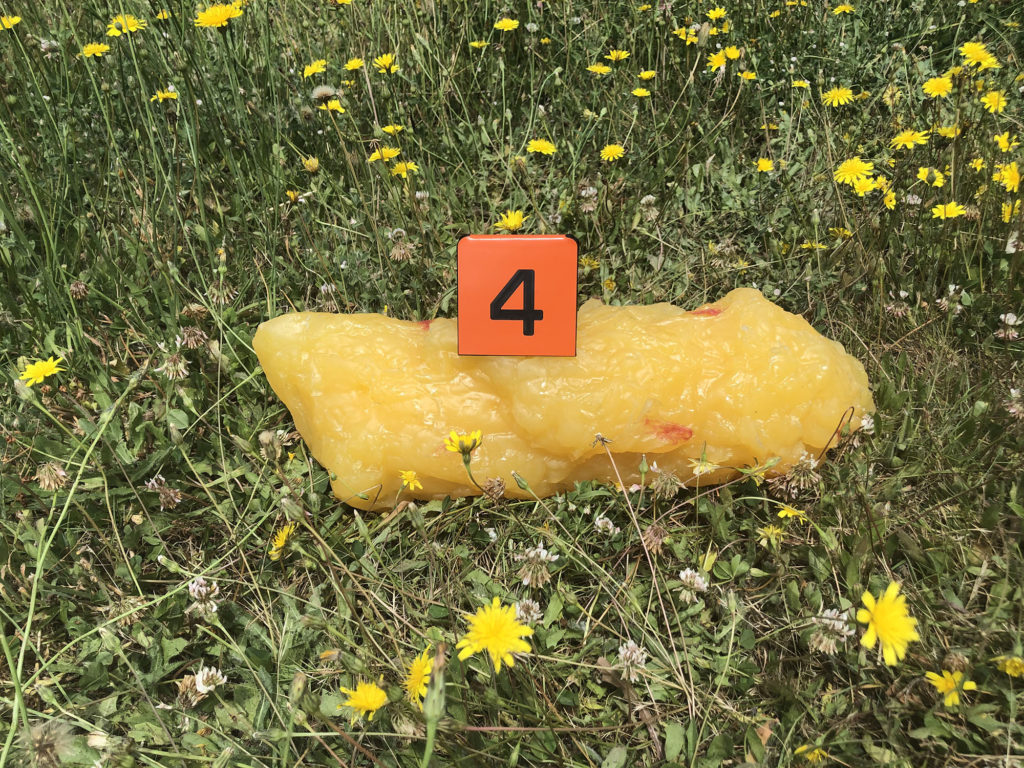
Check your knowledge. Can you:
-
explain what stress is, including examples of short-term and long-term stress events?
-
describe the impacts of adrenaline (epinephrine) and cortisol on the body and list factors that can reduce the potential impacts of a stress response?
-
define metabolism, including catabolism and anabolism and explain how hormones impact appetite?



